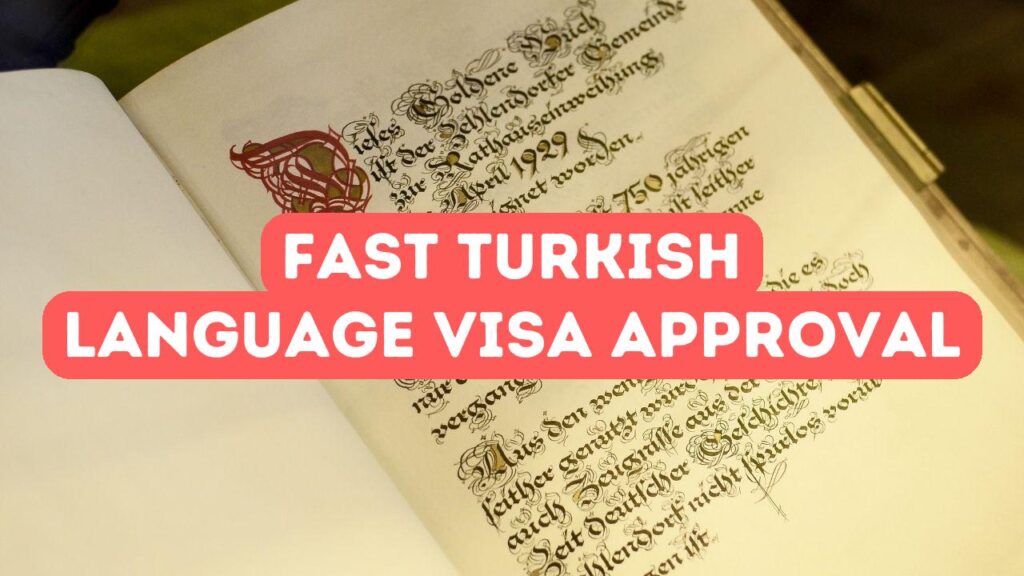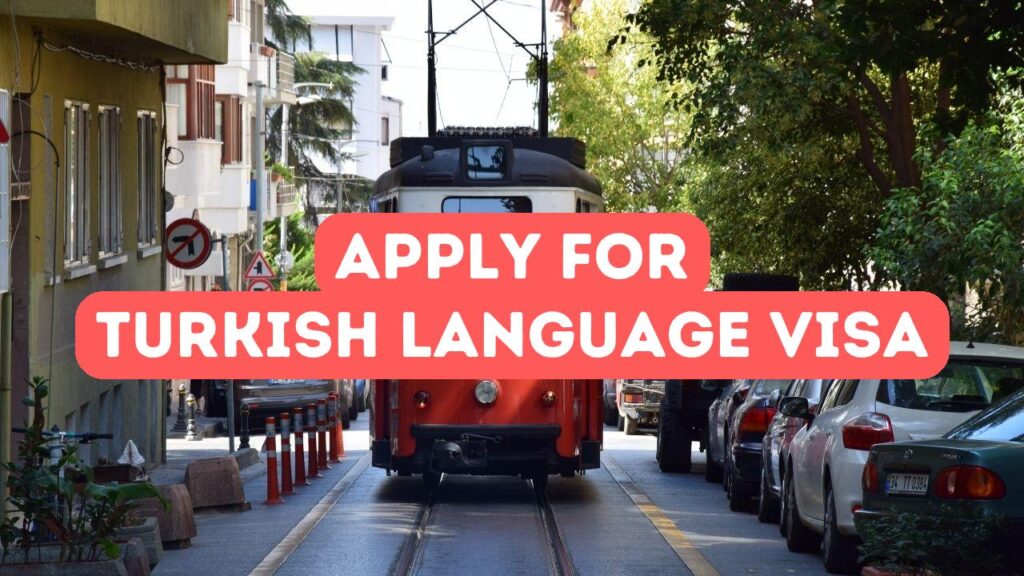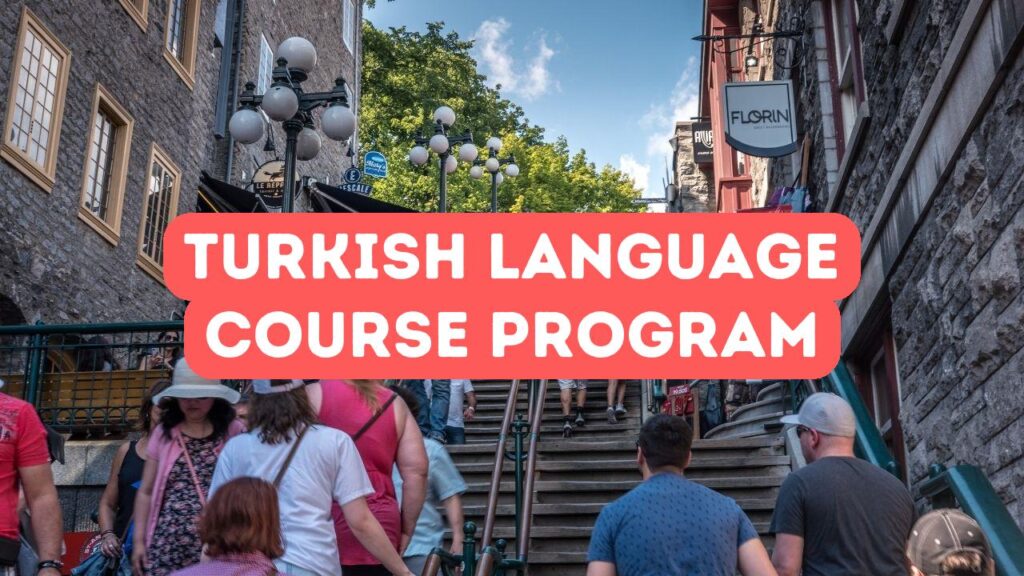Navigating the Turkish study visa landscape can feel like tackling a tricky puzzle. As 2026 approaches, understanding the study visa requirements becomes paramount for international students eyeing Turkey as their study destination. Turkey beckons with its rich history and vibrant culture, offering so much more than just academic credentials. Those keen to study in Turkey will find the 2026 visa process an essential chapter in their journey. It’s crucial to know the steps involved to secure your spot in this captivating education hub. Imagine standing at the crossroads of continents, with knowledge as your compass. The Turkish study visa isn’t just a requirement; it’s your gateway to new experiences and opportunities. As an international student, having clear insights into the study visa requirements ensures a smoother transition into this land of possibilities. Brace yourself for an enriching adventure that Turkey promises, starting with understanding its 2026 visa process.
Essential Document Checklist for Your Turkish Study Visa Application
Getting your Turkish study visa process right starts with having all the necessary documents. First on the list is a completed application form, which sets the stage for everything else. Next, ensure you have a valid passport, a crucial piece of the puzzle. It must be valid for at least six months from your intended arrival date. Don’t forget recent passport-sized photos that meet biometric standards. Proof of enrollment from a Turkish institution is another key requirement, acting as your golden ticket. Financial evidence showing you can support yourself while studying in Turkey is vital, too. International students often overlook the need for a health insurance policy covering their stay. Lastly, gather any additional paperwork specified by the Turkish consulate in your region. Each document ticks a box, moving you closer to both your Turkish adventure and academic dreams. Keep this checklist handy as you dive into the 2026 visa process.
Securing your Turkish study visa hinges on having a rock-solid document checklist. Start by getting a valid passport, which acts as a key to unlock the wonders of Turkey. Alongside that, ensure you don’t miss your recent passport photos, following strict biometric standards. To underline your purpose, proof of enrollment in a Turkish institution is non-negotiable. It’s the bridge that connects your dreams to reality. Don’t skim on showing financial capacity—it’s your lifeline to sustain your study in Turkey. Health insurance should be next on your radar, safeguarding you against unexpected twists. Lastly, keep an eye out for any extra requirements from the Turkish consulate, as these can change the entire 2026 visa process landscape. Missing even one of these could be akin to losing a puzzle piece, scarring your journey. Equip yourself well; your adventure as one of Turkey’s international students awaits with open arms.
While gathering documents can seem daunting, breaking down the Turkish study visa requirements simplifies the path ahead. At the forefront of your 2026 visa process should be a filled application form, guiding you through the necessary paperwork. Additionally, maintaining a valid passport is akin to holding your ticket to study in Turkey. Biometric passport photos are not merely for identification—they enhance the precision of your application. Aim to present proof of enrollment; this document certifies your status as an international student ready to embrace Turkish academia. Equally important is showcasing financial support—a requirement that guarantees your ability to focus on academics without financial hiccups. Don’t overlook health insurance, either; it’s a safeguard, creating a cushion against unforeseen health issues. Lastly, stay vigilant for any unique requirements the Turkish consulate might impose, as these can pivot how smoothly your application progresses. With these essentials, you’re prepped to explore the vibrant grounds of Turkey.
Understanding the Financial Obligations for International Students in Turkey
Securing a Turkish study visa in 2026 comes with financial considerations that international students must understand. Tuition fees, living costs, and other expenses paint the financial landscape you’ll navigate while you study in Turkey. Being well-prepared financially is not just smart; it’s essential. The 2026 visa process requires proof of sufficient funds, ensuring that you can support yourself during your stay. This isn’t merely about covering tuition. Think about accommodation, meals, health insurance, and everyday expenses that might catch you off guard. Much like constructing a solid foundation, understanding your financial obligations beforehand ensures a stable and worry-free study experience. Prospective international students should explore scholarships and part-time work options, which can ease the financial load. By doing thorough homework on these study visa requirements, you protect your journey in Turkey, making it both affordable and rewarding.
Managing your finances wisely is key when you plan to study in Turkey. One critical factor for international students is understanding all associated costs for the Turkish study visa. Besides tuition, anticipate living expenses in this vibrant country. These can include accommodation and daily meals — don’t let these elements take you by surprise. Health insurance is another vital aspect, ensuring you’re covered throughout your stay. While eyeing the 2026 visa process, prepare documentation showing your financial readiness. Think of this preparation as building a treasure chest for your educational journey. Consider scholarships or part-time job options to lighten your financial burden. With a solid financial plan, you can focus on your studies, making your experience in Turkey not just about academics but life itself. After all, embracing the cultural wealth here is just as important as ticking off those study visa requirements.
Studying in Turkey demands a clear understanding of financial obligations. The 2026 visa process for international students isn’t just about paperwork; it’s a financial prelude to your academic tale. Costs extend beyond tuition, covering essentials like accommodation and meals. Turkey’s vibrant allure means budgeting for cultural explorations too. A Turkish study visa requires proof you can afford these adventures. Continued access to healthcare is a must, not just a suggestion—ensure your insurance aligns with the study visa requirements. Scholarships offer a lifeline, reducing financial weight, while part-time jobs can sprinkle some relief into your budget. Picture this preparation as weaving a safety net for your studies. Planning finances isn’t just ticking boxes; it’s setting the stage for memorable moments in a foreign land. When you have financial clarity, your journey to study in Turkey becomes not merely possible, but profoundly enriching.
Key Changes to Turkish Study Visa Regulations for 2026
In 2026, notable changes to the Turkish study visa regulations mean international students must be prepared for a streamlined but slightly altered process. The 2026 visa process now emphasizes timely documentation submission, which is crucial for anyone looking to study in Turkey. Key updates include a revised list of required documents and an improved online application system that simplifies the study visa requirements. Turkish authorities have also introduced a pre-arrival orientation program, ensuring international students are well-prepared for their academic journey. Understanding these changes is vital; they form the cornerstone of the Turkish study visa application. For students worldwide, staying informed about these adjustments can mean the difference between a seamless transition and unexpected hurdles. Adapting to this evolving landscape ensures international students can fully embrace their time in Turkey, experiencing both its academic and cultural richness.
The Turkish study visa landscape in 2026 introduces several key changes that international students must understand to ensure a successful application. One major update is the firm deadline for document submission, which requires early preparation for all prospective scholars. Missing this could mean missing out on the chance to study in Turkey. Additionally, the list of required documents now features a few new elements, aimed at ensuring students meet the study visa requirements more effectively. Enhancements to the online application system promise a smoother experience, making it less daunting to navigate the 2026 visa process. A noteworthy addition is the mandatory pre-arrival orientation. This session helps international students acclimatize before they even step onto Turkish soil. Each change in the 2026 visa process is designed to add clarity and efficiency. Keeping pace with these changes empowers students to focus on their ultimate goal – an enlightening education in Turkey.
Since English is not the usual language used in Turkey, international students should be aware of the new language proficiency requirements deemed necessary for the 2026 visa process. Proving competency in either English or Turkish is now mandatory. By doing so, authorities aim to ensure international students can communicate effectively and thrive academically once they commence their studies in Turkey. Moreover, there’s a pilot scheme to provide language support, highlighting Turkey’s commitment to student success. Being language-ready not only smoothens the study visa requirements but also enriches the learning experience, allowing students to immerse fully in both the culture and educational opportunities Turkey offers. Adapting to these new changes is handy for international students as it highlights their dedication to study in Turkey and enhances their overall experience. Understanding this aspect of the Turkish study visa is key in transitioning smoothly into the academic realm.
Disclaimer: This article is for general informational purposes only and you are strongly advised to consult a professional to evaluate your personal situation. No liability is accepted that may arise from the use of the information in this article.







